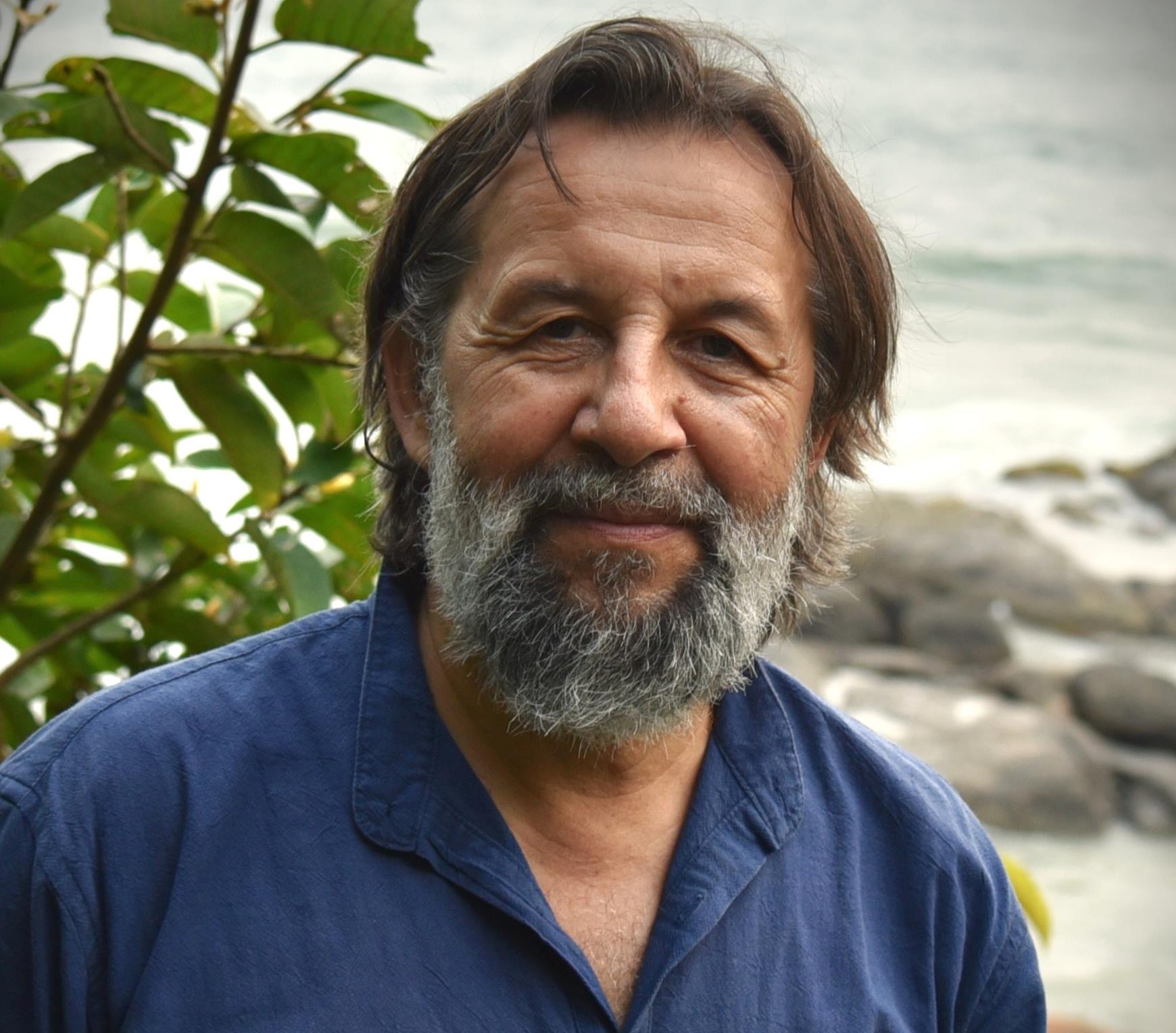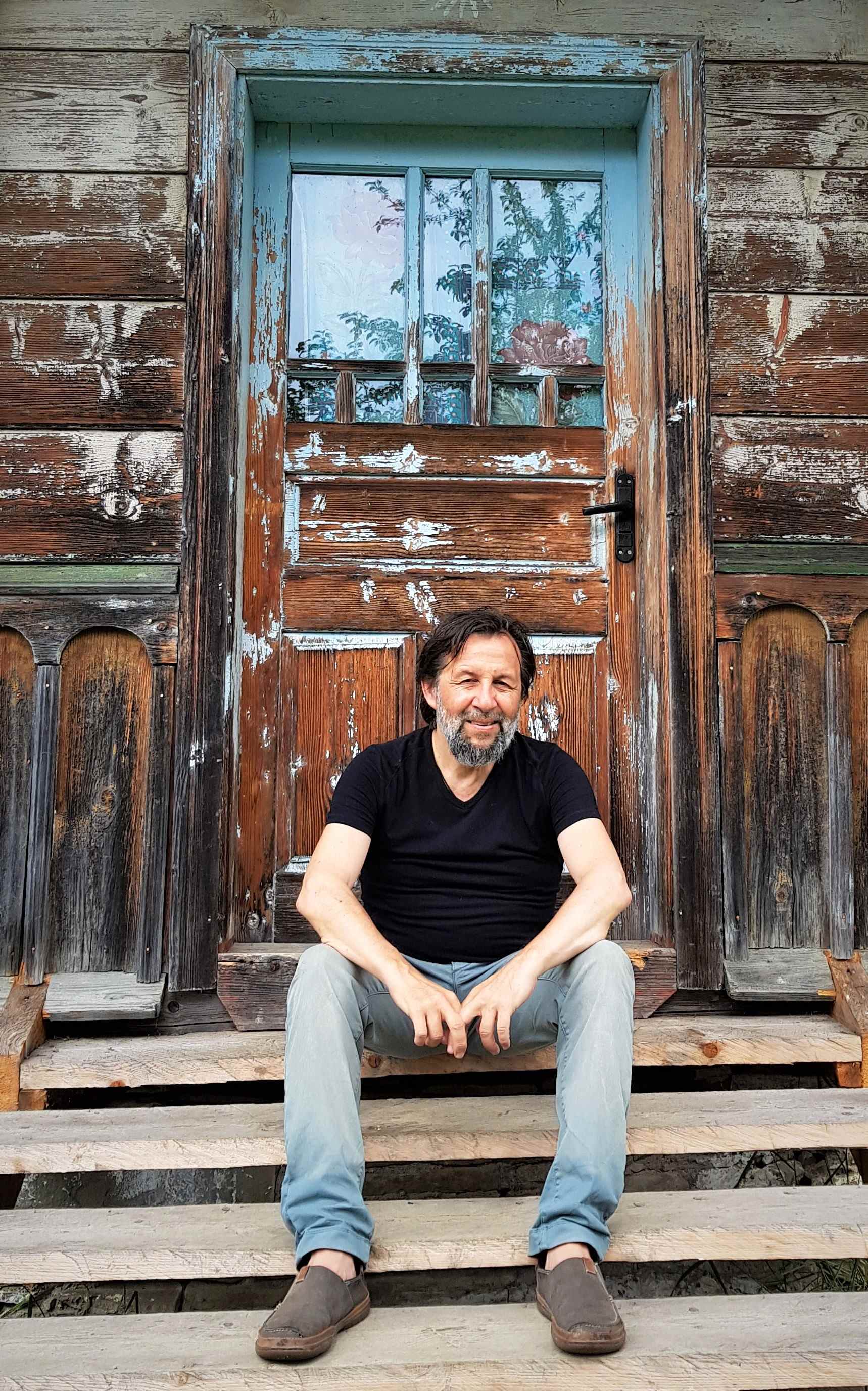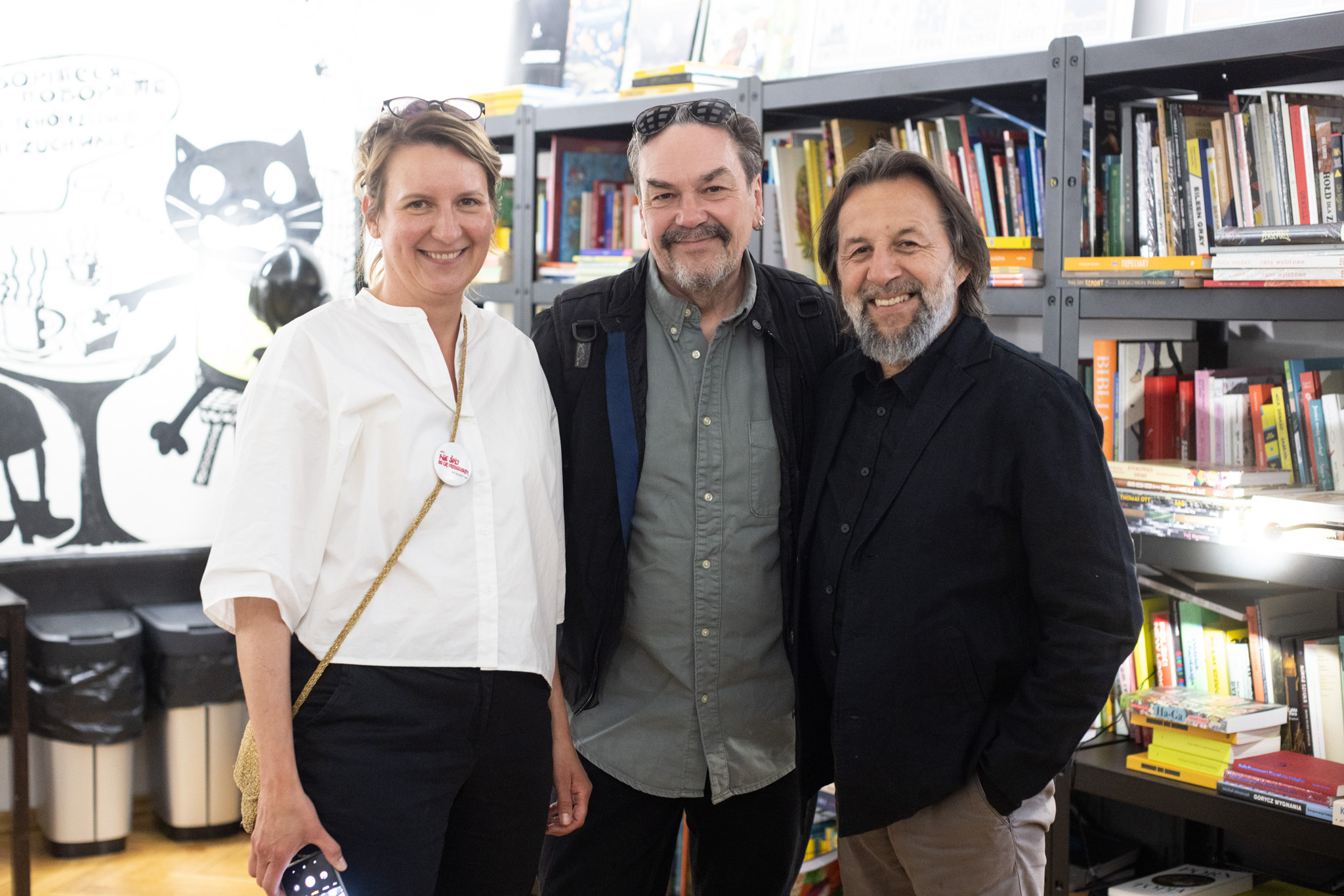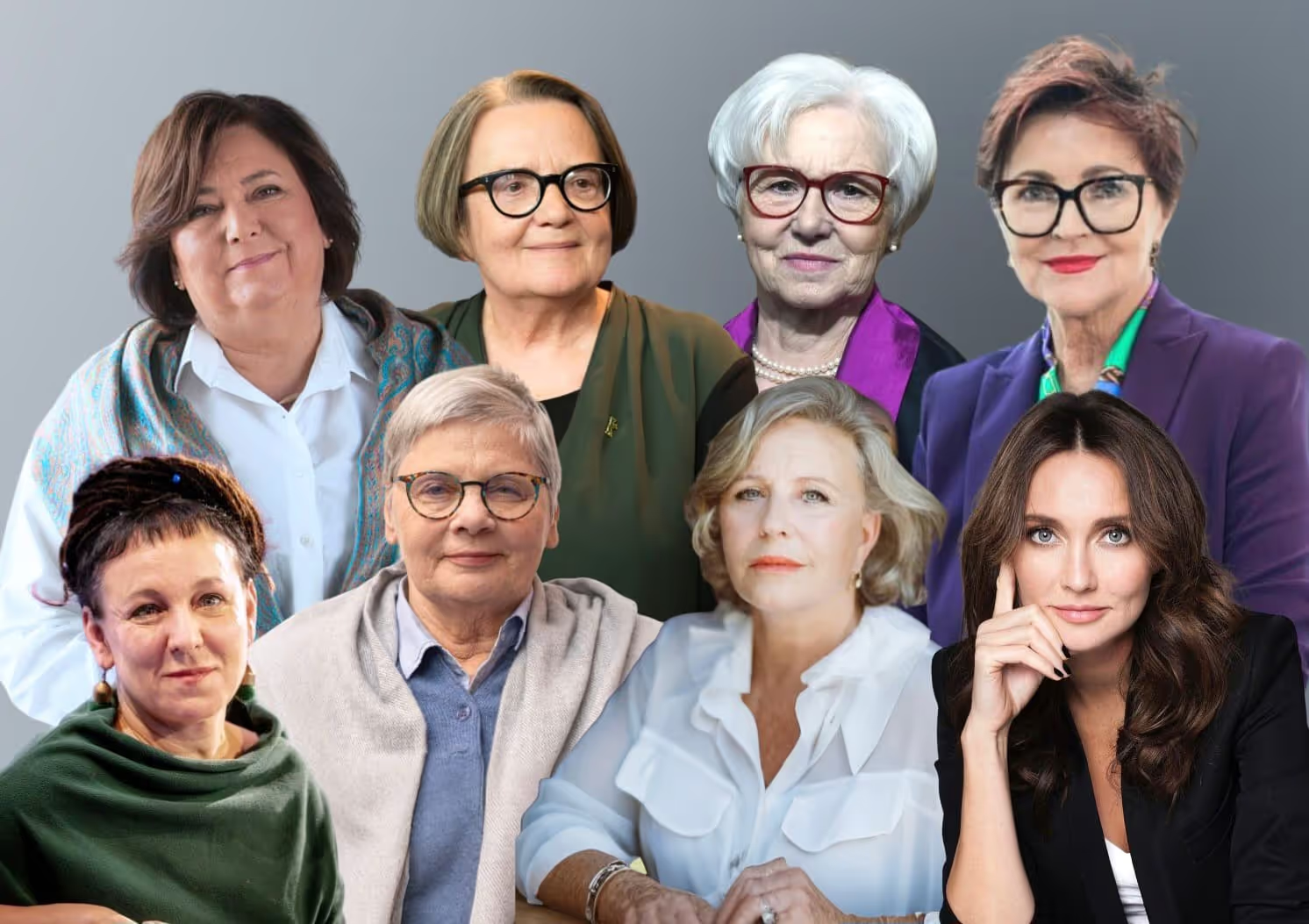Support Sestry
Even a small contribution to real journalism helps strengthen democracy. Join us, and together we will tell the world the inspiring stories of people fighting for freedom!
I had been waiting for weeks to speak with «Vpered’s» chief editor, Svitlana Ovcharenko. Finally, late on a Saturday evening, she called me while I was walking along the waterfront of a small Polish town. My thoughts were in the destroyed Bakhmut, among the dispersed community of Bakhmutians scattered by the war.
Eighty-four-year-old Vasyl from Bakhmut now lives in a retirement home in the Czech Republic. In the newspaper «Vpered», he shared, «They gave me a new mattress! I did not want to lie on the old one, and now I do not want to get up from the new one - it is so comfortable». Comfortable furniture, like everything else of value to the people of Bakhmut, has disappeared in the city's ruins. All that remains are the people, the keys to their destroyed homes, and... the city’s print newspaper.
%25252520%252525D0%252525B7%25252520%252525D0%252525BA%252525D0%252525BE%252525D0%252525BB%252525D0%252525B5%252525D0%252525B3%252525D0%252525B0%252525D0%252525BC%252525D0%252525B8.avif)
Readers in the underground
Before the war, the editorial office of the Bakhmut newspaper «Vpered» was located on Peace Street. Chestnut trees grew in the yard, blossoming with soft pink flowers in the spring and dropping shiny brown nuts generously in the fall. Once, they even cracked the windshield of the editorial car.
The eight windows of the office witnessed life: late-night newspaper layouts, meetings with readers, emotions, and debates. Now, only charred trunks and ashes remain. «Those windows are gone, and there is no life behind them. Where there once was a porch where we loved to drink coffee, now there is a black void», says Svitlana Ovcharenko.
The newspaper’s release was only suspended twice: in 1941 when Nazi Germany attacked and on February 24th 2022 - because of the Russian invasion
«Bakhmut was bombed on the first day of the invasion», - Svitlana recalls. - «We had prepared the newspaper on February 23rd, but on the 24th, we could not retrieve it from the printing house in Kramatorsk because the road was under constant fire».
Pro-Russian militants had attempted to seize Bakhmut back in April 2014, but on July 6th of that year, the city returned to Ukrainian control. The war raged 30 kilometres away for eight years, but no one imagined it would reach the city itself.
They would build promenades, lay tiled pavements, develop parks - instead of building defence fortifications
In March, the editor of «Vpered», Svitlana Ovcharenko, left for Odesa with her mother, hoping to wait out the «escalation». She dressed in a tracksuit, packed essential items in a backpack, and slipped two sets of keys - one to the newspaper office and one to her apartment - into her pocket.
The first issue of the newspaper was printed in the Autumn of 2022, in the midst of the war.
During the first months of the war, Svitlana lived glued to the news, keeping track of what was happening across the country. Bakhmut had become one of the most dangerous places on Earth, yet people stayed.
The Russians cut off electricity, gas, and mobile connections, while their propagandists misled the population via radio signals, claiming that everyone had abandoned them, and even local authorities had fled.
«Kyiv has fallen», - blared from the radios
In the first months of the full-scale war, nearly 50 thousand people left the city of 73 thousand. Yet some returned, saying, «There is no one waiting for us there, so there is no point in leaving».
The Russians launched an active offensive in August, and fierce fighting broke out among the city's buildings, the most intense battles since World War II.
Efforts to persuade the remaining residents to leave were unsuccessful. By October, local authorities started bringing in basic heating stoves, firewood, and coal. Every trip outside the basements could be a resident’s last, but nearly 20 thousand people remained in the city.
This jolted Svitlana Ovcharenko out of her stupor. She decided to revive the newspaper to provide accurate information to those who were afraid to leave. There were countless challenges: accounting records, passwords, and access codes had been left behind in Bakhmut. However, thanks to the efforts of the National Union of Journalists of Ukraine and a Japanese foundation, the first issue was printed on November 4th 2022, right in the midst of the war.
The first printed edition was brought to Bakhmut by Italian journalists.

The residents took the paper with surprise and joy, believing it was a sign that the end of the war was near. «It was a ray of hope in our hell», they later wrote on social media.
«Vpered» published an interview with the mayor, Oleksiy Reva, who urged civilians to evacuate immediately. «Kyiv has not fallen, and Bakhmut residents will be welcomed in any Ukrainian city», the newspaper wrote. And people began to leave...
Before the war, much had been said about the death of print newspapers in Ukraine. But it turned out that the local newspaper, which people had trusted for years, held great influence. It was no coincidence that Russian occupiers repeatedly forged «Vpered» to spread their propaganda among the locals.
In February 2023, Deputy Prime Minister Iryna Vereshchuk reported that fewer than four thousand residents remained in Bakhmut.
One of the last issues of the newspaper was brought to Bakhmut by volunteer Mykhailo Puryshev’s team in May 2023.
In a room lined with sandbags, stacks of newspapers lay in the middle. People with weary faces gathered around, reading with hope, longing to hear they could stay in their homes. But no - the newspaper reported that the city was close to falling under Russian control. On May 20th 2023, Russia declared the complete capture of Bakhmut.
«Should we keep publishing a newspaper for a city that no longer exists?»
In response, Ukrainian soldiers released drone footage showing collapsed roofs, destroyed apartment blocks, burned-out vehicles… a dead, deserted city. Russian forces had taken control of Bakhmut's territory, but the city itself was entirely destroyed. Experts estimate it will take at least ten years to clear the landmines, and another decade to remove the rubble.
.avif)
Svitlana Ovcharenko received a call from Serhiy Tomilenko, the head of the National Union of Journalists of Ukraine (NUJU). He asked whether it made sense to continue publishing the city’s newspaper, given that Bakhmut no longer existed. Ovcharenko responded: «Bakhmut lives in each of us. As long as we breathe, the city remains alive. Because Bakhmut is more than just bricks and concrete. It is us - the people».
The NUJU involved Ovcharenko in the IRMI (International Institute of Regional Press and Information) project, which was implemented in partnership with Fondation Hirondelle and financially supported by Swiss Solidarity.
The newspaper started being delivered across Ukraine to refugee centres where most Bakhmutians now live. There are already 12 such centres. Some former residents of Bakhmut even pay to have the newspaper delivered via Nova Poshta, spending 55 hryvnias (about 5 zlotys) to receive each issue. «Even the smell of the printing ink on Vpered reminds me of home», admits 62-year-old Nadia, who now lives in Poltava and goes to the post office every two weeks to collect the newspaper.

«I can not part with the keys to my bombed-out apartment»
Svitlana Ovcharenko continues to live in Odesa with her elderly mother in a rented apartment. «Where my apartment in Bakhmut once stood, there is now a massive black hole. My mother's home is nothing but ruins. I was asked to donate my keys to the «Time Capsule» installation about Bakhmut, but I can not bring myself to part with them. As long as I have them, there is still hope that one day I will unlock the door to my home».

In one of the newspaper's photo illustrations, keys of various sizes and shapes are laid out on an old fabric. These fragile symbols of lost homes each carry the pain and memories of lives destroyed.
In a newspaper story, 71-year-old Lyudmyla shares her experience: «My husband and I settled on the left bank of the Dnipro. The room is small and without repairs - old wallpaper and outdated plumbing. The windows do not work, and the ventilation is poor. It is painful to compare it to our previous home. So much time has passed, yet we are still adjusting to new streets and these everyday inconveniences».
The topic of lost homes resonates deeply with Svitlana Ovcharenko. I had seen her photos and heard her voice - she struck me as a much younger woman. As if reading my thoughts, Svitlana clarified, «I am already retired. I understand my readers. Like them, I still can not sleep soundly in an unfamiliar bed».
Despite her personal struggles, she continues to publish the newspaper. For a long time, she prepared each issue alone. A colleague, who had found refuge in Sumy Oblast, helped format the text for the eight-page paper.
Sometimes, they would start work at 2 AM and continue until morning—this was the only time they both had access to electricity due to the destruction of the energy system. «I set my alarm for 2 AM, wake up, go to the kitchen, brew coffee, and turn on my laptop. I am in Odesa, my colleague is in Sumy».
Now, four people work with Svitlana on the newspaper. They also manage the website, fill social media with updates and shoot videos.

«Do not repeat Bakhmut’s mistakes»
One of the latest issues of the newspaper features a profile of soldier Volodymyr Andriutsa, call sign «Talent». He was born and lived his entire life in Donetsk Oblast. He died defending Bakhmut. His father, Mykola Andriutsa, recalls with sorrow how long it took his son to accept that Russia had become the enemy.
- There was even a time after 2014 when Volodymyr travelled to Crimea and then to Russia, - recalls Mykola. - Even on a day-to-day level, he saw how much they hated us, Ukrainians. The full-scale war turned him into a true patriot and defender.
Recently, the newspaper editor received a message from an acquaintance asking to anonymously share her husband’s story. He had gone through so much trauma that his life had become a nightmare - he wandered around a foreign city, collecting trash and food scraps, and bringing them back to their rented apartment. His actions seemed senseless, but perhaps he was seeking some personal meaning and stability in the chaos of war.
The people of Bakhmut are now scattered across the world. They are learning to live again, but they still remember their city and dream of returning. «Bakhmut lives as long as we remember it», says Svitlana. And as long as the «Vpered» newspaper keeps them connected, that memory remains alive.

Next to me, a peaceful Polish town drifts off to sleep. In the quiet evening, I ask the editor of the Bakhmut newspaper what she would say to Polish and Ukrainian readers.
- Do not repeat Bakhmut’s mistakes. Do not forget about the war. Protect your lives. Otherwise, nothing will be left but ruins and memories…
Photos from the «Vpered» newspaper’s archives

Editor and journalist, author of articles on local governments, ecology and human stories, as well as an advocate for solutions journalism, explanatory journalism, and social campaigns in the media. In 2006, she founded the municipal newspaper «Visti Bilyayivky». The publication successfully underwent privatisation in 2017, transforming into an information agency with two websites - Біляївка.City and Open.Дністер - along with numerous offline projects and social campaigns. The Біляївка.City website covers a community of 20 thousand residents but attracts millions of views and approximately 200 thousand monthly readers. She has worked on projects with UNICEF, NSJU, Internews Ukraine, Internews.Network, Volyn Press Club, Ukrainian Crisis Media Center, Media Development Foundation and Deutsche Welle Akademie. She has also been a media management trainer for Lviv Media Forum projects. Since the beginning of the full-scale war, she has been living and working in Katowice for Gazeta Wyborcza.







